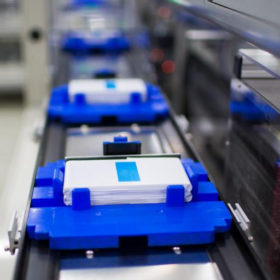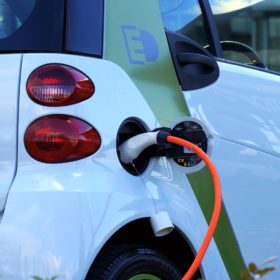Moixa contracted under residential flexibility power scheme in the UK
U.K. Power Networks has tendered 18.2 MW of flexible power capacity to six companies across eight regions. With regular feed-in returns hanging in the wind in the U.K., flexibility and peak time management payments could be an alternative source of income for the solar industry.
Unlocking lithium metal’s stored potential
Several new concepts in lithium-ion storage technology have the potential to greatly the increase the energy capacity of batteries. Among them are lithium metal anodes, which could potentially increase energy density by more than 50%. With a newly optimized electrolyte, scientists at the University of California, San Diego have taken another step toward making the idea a commercial reality.
Growing interest in energy storage for maritime applications
The Electric and Hybrid Marine World Expo in Amsterdam last week highlighted growing interest in storage technology from the sea vessel industry. Leading global battery manufacturers had their latest charging technologies on display, catering to rising demand for clean, efficient electric and hybrid marine systems.
Single-walled carbon nanotubes go into industrial production in China
The material is a conductive additive for silicon anodes in lithium-ion batteries, helping to improve cycle life and increase energy density. It has taken decades to bring the nanotubes into commercial production.
Battery maker CATL ramps up investment in German gigafab to €1.8 billion
Previously, a mere €240 million was set to flow into the giga-factory. The corporation’s management reasoned new demand for its battery cells made more investment necessary.
Battery scientists make a cracking observation
Scientists at the Georgia Institute of Technology in the U.S. used x-ray imaging to observe cracks forming in a solid state lithium battery, a discovery they say changes the understanding of performance of solid state batteries and which could lead to more durable systems.
Ganfeng Lithium wagers $28m on Sonora lithium deposits in Mexico
The Chinese lithium-ion battery producer has taken significant stakes in two U.K. entities associated with a mine which could hold up to 8.8 million tons of the raw material in clay deposits.
Japan’s ENERES developing virtual power plant with 10,000 assets
The energy services firm will use software from California’s AutoGrid to develop a VPP which will draw on PV generation, energy storage and demand response technology. ENERES wants businesses to come on board and burnish their renewables credentials.
Los Angeles seeks record sub-two cent solar power price
The city’s municipal utility is readying a 25-year power purchase agreement for 400 MWac of solar at $0.01997/kWh along with up to 200 MW/800 MWh of energy storage at $0.013/kWh.
Nigeria taps mini-grids to power universities
Four Nigerian universities are in the final stages of abandoning the country’s main grid to be fully powered by mini-grids. Nigeria aims to use more mini-grid technology to power its people by tapping a $550 million World Bank loan.










